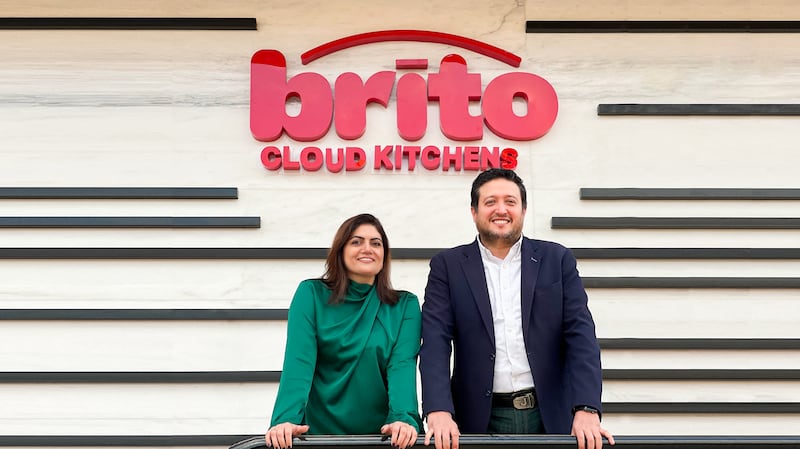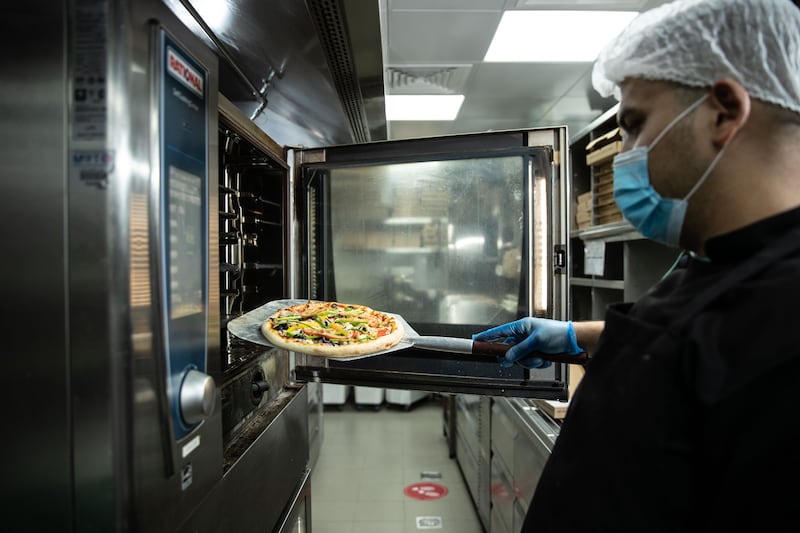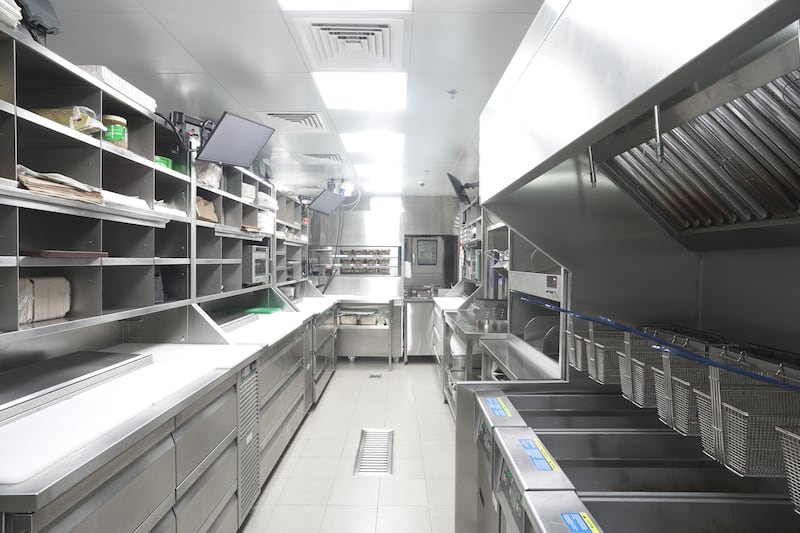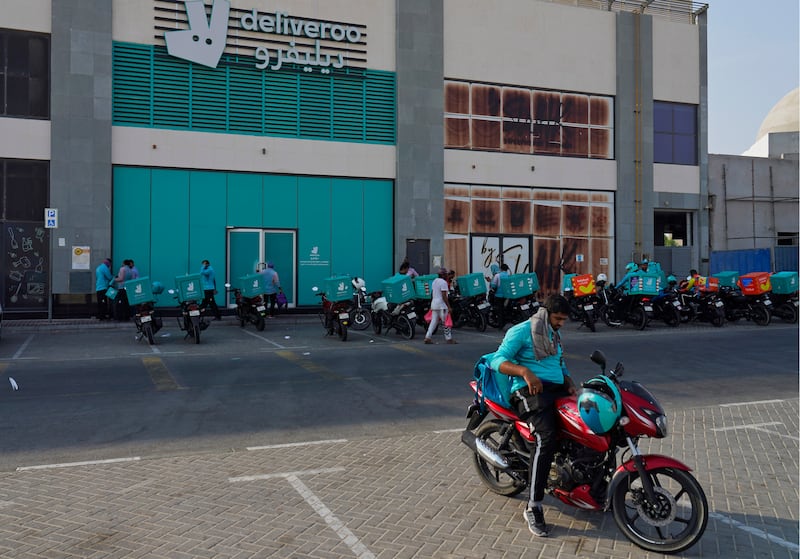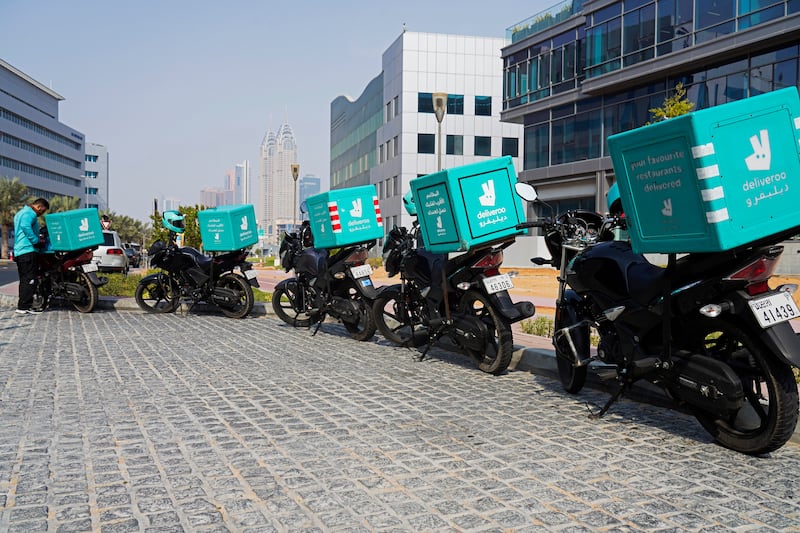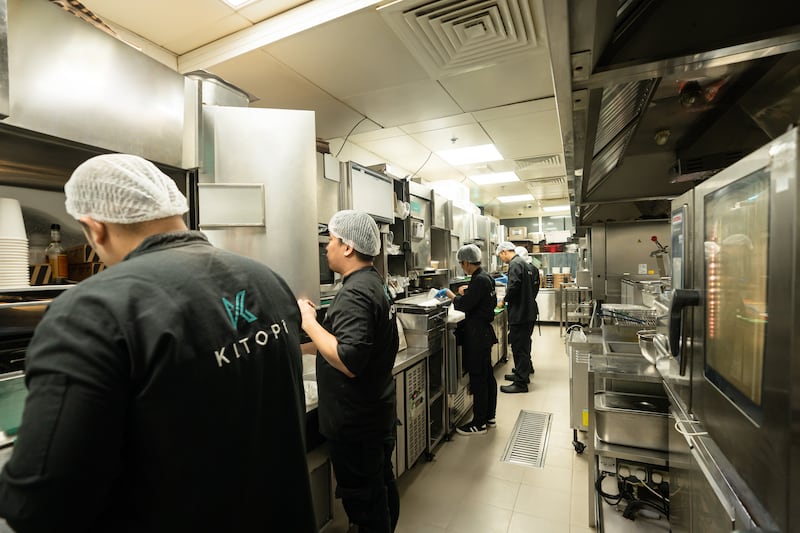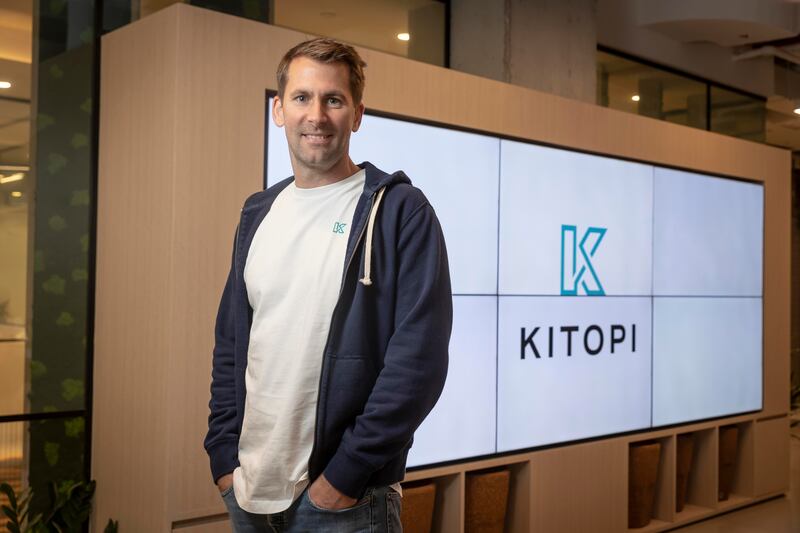Brito is Egypt’s latest new cloud kitchen on the block, but chief executive Rania Reda insists that its model will stand out from the crowd.
The start-up, founded by Ms Reda and Mo’nes Sadeq in February, recently raised $1.25 million in pre-seed funding from a Central Bank of Egypt initiative and angel investors.
Cloud kitchens, also called ghost kitchens and dark kitchens, are food production units built to prepare food specifically for delivery.
The concept has taken off in recent years, particularly during the Covid-19 pandemic when lockdowns and travel restrictions kept consumers homebound.
The UAE now has several cloud kitchen operators, dominated by Middle East market leader Kitopi, which was founded in 2018 and has raised more than $800 million over several funding rounds. They follow various cloud kitchen models – for example, either representing one brand or many, outsourcing or taking over operations, cooking or simply renting out space.
Egypt has about eight cloud kitchen companies, all started after the onset of the pandemic, but the majority don't follow the Kitopi model: taking care of the entire operations process — from supply chain and staff training to food preparation and delivery.
“The models that [competitors] operate are totally different than Brito. What they do is rent out the space … It is like a multi-tenant kitchen for multiple brands,” Ms Reda tells The National. “Our kitchens are operated by Brito, so we do the cooking.”
For example, Food Nation, which has offices in Cairo and Dubai, has entered into partnerships with several Tivoli food court restaurants in Cairo and Alexandria, by offering commercial kitchens for rent to accommodate their delivery orders.
Kitchen Hive does the same, while using technology to minimise costs and maximise profits. “All you have to do is cook”, its website says.
The Food Lab, however, does offer procurement, cooking, delivery and marketing. Founded in 2020, the start-up closed its first $4.5 million funding round in April this year, led by Africa-focused fund 4DX Ventures and UAE-based venture capital firms Nuwa Capital and Shorooq Partners.
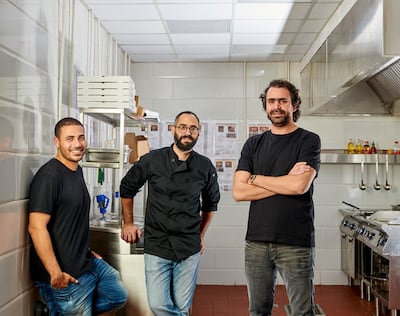
Other players in Egypt’s new crop of cloud kitchens include KitchinCO, KoKens, Chef’s House and Comida Cloud Kitchens.
There is probably room for them all in a country of 104 million people where food delivery is booming. Egypt’s online food delivery market is projected to reach about $586 million this year and grow to more than $1.58 billion by 2027.
The global cloud kitchen market was valued at $63 billion in 2021 and is projected to grow at a compound annual rate of 22 per cent to $374 billion by 2030.
However, it is also a tricky space, as Covid-19 trends shift to a new normal and global economic woes hit technology start-ups.
Kitopi — which comprises more than 200 brands in more than 200 locations in the UAE, Saudi Arabia, Qatar, Bahrain and Kuwait — reportedly fired around 90 people from its head office staff last month.
Ms Reda is unfazed and says it is the ideal time and place to help restaurants save money and improve efficiency.
Since the Russia-Ukraine crisis, foreign investors have withdrawn billions of US dollars from Egypt's treasury markets. The central bank has devalued the pound twice, leading to double-digit inflation.
“When you look at the economy and devaluation that’s getting done one time after another, the restaurants are not making enough revenue … and this is the time for the sharing economy to save them, to give them a slim margin on top of what they are making that will make a huge difference,” Ms Reda says.
She first heard of the cloud kitchen concept while living in San Francisco. Coming from a technology background, she had already founded two software development start-ups.
Shortly before Covid-19 hit, she visited her sister in Dubai, finding out about Kitopi and other cloud kitchens there.
When she returned to Egypt, she started investigating whether cloud kitchens existed in the country and their market viability.
To complement the technology backgrounds of the co-founders, they hired Hassan Ghandour, who has about 30 years of experience in the restaurant management business, as Brito’s vice president of food and beverages.
Brito now has a 1,000-square-metre multi-storey factory in the industrial zone in New Cairo that serves as the central kitchen, ensuring consistency between its satellite kitchens. Ingredients are stored and food is semi-prepared before it is transported for final cooking.
“It is a hub and spoke model, so we have a central kitchen and then we have a network of satellite kitchens that are proximate to the residential areas where the food comes out from for delivery,” Ms Reda says.
The company has a 400-square-metre satellite kitchen in New Cairo, to the east of central Cairo, and has plans to open 11 more throughout the city over the coming three years.
While the pre-seed round was needed to sign up early adopters, the next funding round that Ms Reda expects to close by May will support expansion.
Finding cheaper real estate is not a problem, she says, as “it doesn’t have to be a premier location”.
“It is not a restaurant, it is a ghost kitchen. It doesn’t have to be seen.”
The sharing economy model “provides maximum profitability for the brands” because Brito can make mass purchases of materials and ingredients, securing better prices and lowering overall costs, Ms Reda says.
The start-up counts 72 local and international brands as customers, and offers three business lines: one for restaurant brands, one for corporate clients and one for virtual brands.
For corporate clients, such as Telecom Egypt and Ain Shams University, Brito caters for their conferences and training centres.
Brito has also created five of its own delivery-only virtual brands, including burgers, fried chicken, pizzas, grills and sandwiches.
“The challenges here are high; the responsibilities are higher. It requires that you have all the skills needed to run such a business. It requires higher capital as well, because you have to cater for the equipment that every brand would require,” Ms Reda says.
The cloud kitchen industry also requires heavy capital in terms of human resources. Brito currently has 110 employees over a few shifts to cater for business from 8am to 2am.
“That is good for the economy because you are opening job opportunities in large numbers. That is one thing I am proud of,” she says.
“The other thing is that I am the only female founder building a cloud kitchen in the region,” she says. “One of my goals here is to fix the broken gender balance in this industry.”
